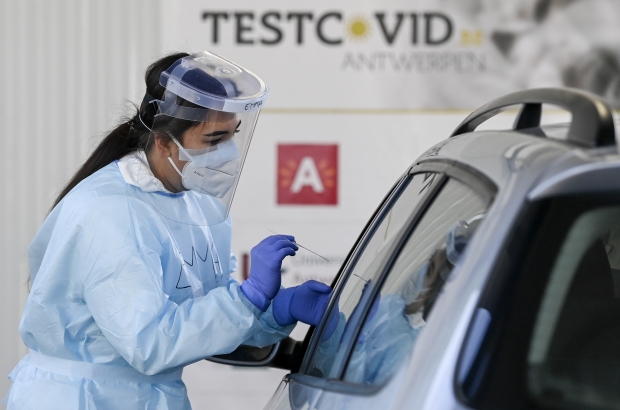- Daily & Weekly newsletters
- Buy & download The Bulletin
- Comment on our articles
As winter approaches, experts warn coronavirus wave ‘will not be a small one’
If anyone thought the coronavirus pandemic was over, KU Leuven medical professor and microbiologist Emmanuel André would like to set the record straight.
André, who is in charge of Belgium’s National Reference Lab for Covid-19, tweeted a warning this week that the autumn wave of the virus "will not be a small one", and that less infrastructure is in place to handle it.
“In Belgium, measures to control the Covid-19 epidemic are much weaker than a year ago,” André wrote. “We are also carrying out much less testing and have abandoned tracing. Generally speaking, our vigilance has decreased with time, and also thanks to the level of immunity acquired.”
But he said the country was already experiencing a new wave of infections driven by autumn conditions, along with the constant evolution of the virus itself.
“Despite the evidence of this wave, and despite the inevitable impact it will have on our healthcare system and the health of the most fragile people, our society now sees less need to organise itself to limit the size and impact of this wave of infections,” said André.
Sciensano figures for the end of September indicate an average of 2,500 infections per day and 83 daily hospital admissions, which are increases of 27% and 42% respectively over the course of just one week.
Federal health minister Frank Vandenbroucke echoed André’s concerns that the country had grown lax in assessing the risk of the virus.
“People don't see the risk any more, but it's still there,” Vandenbroucke said in a house committee meeting earlier this week.
“Because we have effective measures against the virus, the risk is perceived as lower.”
Vandenbroucke spoke in favour of a bill that would improve indoor air quality in enclosed areas accessible to the public, given the virus’s tendency to spread more easily indoors.
“We spend 85% of our time indoors, this should not be underestimated,” he said.
“It's time to remember that there is a fairly large circulation of the virus and that we are at the beginning of a wave. We have taken effective measures, such as vaccination. We know that ventilation is effective. But because we take effective measures, the risk is perceived as less. We must not be fooled by this paradox of prevention.”
Vandenbroucke stressed the importance of a successful campaign for additional vaccinations, but bemoaned the fact that such efforts have so far been unsatisfactory in Wallonia and Brussels.
“The models tell us that we need to have at least 50% of the vulnerable population revaccinated, as well as everyone over 50,” Vandenbroucke explained.
“We are far from that, especially in Wallonia and Brussels. People don't see the risk anymore, but it is still there. That is why we urgently need to accelerate the campaign.”

















